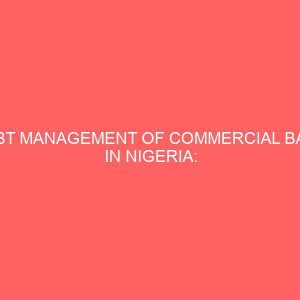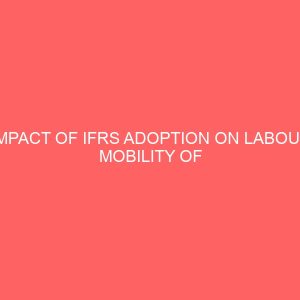Description
Abstract
The increasing competition in the Nigerian banking industry necessitates the banks take on higher degree of risks than they are hitherto accustomed to but the degree of risk inherent in a bank”s lending portfolio has serious implication for the banks earning and earning asset, subsequently for its liquidity, profitability and capital. The problem with which this study was concerned is that of identifying the causes of bad debt in commercial banks using union bank Nigeria Plc as a case study affect the factors such as: Economic recession, non- prudent financial management, natural disaster, prevailing economic situations on debt management were considered. The objective of the work was to study the process of credit appraisal, identify the major causes of bad and doubtful debts, analyze their effect and offer suggestions on minimization and the effective management of bad debts in commercial banks. The study population was, N32 officers from the credit department of the bank from ten branch officers. The instrument used for data collection was the questionnaire at Abakaliki in Ebonyi State of Nigeria. the sample size, n28, was determined by systematic random sampling. the data collected were analyzed, tabulated and presented, using average and simple percentages and conclusions were drawn with the aid of statistical sampling of the response of the respondents. As the result of the analysis of data, the research study discovered that factors such as economic recession, Government monitory policy, excess gearing, under capitalization etc, could cause bad debts in banks. The implication of these findings for debt management in commercial banks are numerous. It implies that the economy, staff qualifications, prudent financial management and establishment of effective loan policy have a significant effect on the incidence of bad debt. Key Words: Debt Management, Problems, Prospects.








Reviews
There are no reviews yet.